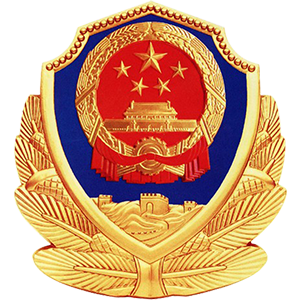State Feedback Generalized H2 Control of Continuous Integrated Control Systems
-
摘要:
基于Lyapunov稳定性理论、矩阵分析法、线性矩阵不等式等方法,对同时带有控制输入和干扰输入的奇异摄动时变时滞不确定控制系统进行广义H2控制研究。 设计一个记忆状态广义H2控制器,给出具体设计方法的判定定理。 并对时滞依赖和时滞独立两种情形下采用新的引理,推出保守性相对更小的稳定性判据。 对所得结论进行线性化处理,用数值样例验证了该文所得结论的有效性和可行性。 指出在零到奇异摄动上界的整个区间范围内,闭环系统渐近稳定,扩大了广义H2稳定空间,缩小了L2-L∞的性能指标。通过与相关文献进行稳定态指标对比,展示出该文所得方法具有一定的优越性和较小的保守性,并且适用于标准和非标准情形。
-
关键词:
- Lyapunov稳定性 /
- 广义H2控制 /
- 状态反馈控制器 /
- L2-L∞性能指标 /
- 交叉项界定法
Abstract:Based on the Lyapunov stability theory, the matrix analysis method and the linear matrix inequality method, etc, the generalized H2 control of singularly perturbed uncertain-control time-varying delay systems with control input and disturbance input, was studied. A memory state generalized H2 controller was designed, and the decision theorem for the specific design method was given. With a new lemma for delay-dependent and delay-independent cases, the relatively less conservative stability criterion was derived. The obtained results were linearized, the selected numerical examples were used to verify the effectiveness and feasibility of the derived conclusions. The results show that, the closed-loop system is asymptotically stable in the whole range from zero to the singular perturbation upper bound, which expands the generalized H2 stability space and reduces the L2-L∞ performance index. The comparison of the stability state parameter index with the related literatures indicate that, the proposed method has certain advantages and less conservatism, and is suitable for standard and non-standard cases.
-
表 1 广义H2稳定性能指标对比
Table 1. Comparison of generalized H2 stability performance indicators
method generalized H2 control gain matrix ${\boldsymbol{K}}$ optimal ${L_2} {\text{-}} {L_\infty }$ performance index ${\gamma ^ * }$ perturbation upper bound $\bar \varepsilon $ ref. [12] ${ {\boldsymbol{K} }_1} = [ { - 22.046\;7}\quad{ - 14.167\;5} ]$ 1.3255 0.3 ${ {\boldsymbol{K} }_2} = [ { - 22.037\;6}\quad{ - 12.656\;2} ]$ theorem 2 ${\boldsymbol{K}} = [ { - 2.252\;4}\quad{0.023\;6} ]$ 1.1265 0.35 ${{\boldsymbol{K}}_1} = [ {0.305\;7}\quad{0.044\;3} ]$ -
[1] 王德进. H2和H∞优化控制理论[M]. 哈尔滨: 哈尔滨工业大学出版社, 2001.WANG Dejin. H2 and H∞ Optimal Control Theory[M]. Harbin: Harbin Institute of Technology Press, 2001. (in Chinese) [2] 高会军, 王常虹, 李艳辉. 时滞不确定系统的广义H2控制[J]. 电机与控制学报, 2002, 6(4): 328-332 doi: 10.3969/j.issn.1007-449X.2002.04.016GAO Huijun, WANG Changhong, LI Yanhui. Generalized H2 control for uncertain time-delayed systems[J]. Electric Machines and Control, 2002, 6(4): 328-332.(in Chinese) doi: 10.3969/j.issn.1007-449X.2002.04.016 [3] 房庆祥. 线性奇异系统的H2控制问题[D]. 硕士学位论文. 济南: 山东大学, 2002.FANG Qingxiang. H2 control problems of linear singular systems[D]. Master Thesis. Jinan: Shandong University, 2002. (in Chinese) [4] 张庆灵, 张雪峰, 翟丁. 控制理论基础[M]. 北京: 高等教育出版社, 2008.ZHANG Qingling, ZHANG Xuefeng, ZHAI Ding. Fundamentals of Control Theory[M]. Beijing: Higher Education Press, 2008. (in Chinese) [5] 王婕. 离散时间随机乘积噪声系统的若干问题研究[D]. 硕士学位论文. 泰安: 山东科技大学, 2017.WANG Jie. Study on some problems of discrete-time stochastic systems with multiplicative noises[D]. Master Thesis. Taian: Shandong University of Science and Technology, 2017. (in Chinese) [6] KATAYAMA T, WASHIKITA Y. Solutions to Wiener filtering and stationary LQG problems via H2 control theory, part 1: continuous-time systems[J]. Memoirs of the Faculty of Engineering, Kyoto University, 1990, 52(3): 219-244. [7] WILSON D A. Convolution and Hankel operator norms for linear systems[J]. IEEE Transactions on Automatic Control, 1989, 34(1): 94-97. doi: 10.1109/9.8655 [8] 赵春燕. 时滞系统的非脆弱广义H2控制[J]. 哈尔滨师范大学自然科学学报, 2008, 24(4): 40-43ZHAO Chunyan. Non-fragile generalized H2 control for linear time-delay systems[J]. Natural Science Journal of Harbin Normal University, 2008, 24(4): 40-43.(in Chinese) [9] 郭祥贵, 王武, 杨富文, 等. 凸多面体不确定系统的鲁棒L2-L∞控制[J]. 中南大学学报(自然科学版), 2007, 38(1): 273-277GUO Xianggui, WANG Wu, YANG Fuwen, et al. Robust L2-L∞ control for polyhedral continuous-time uncertain systems[J]. Journal of Central South University (Science and Technology) , 2007, 38(1): 273-277.(in Chinese) [10] 郭杨, 姚郁, 王仕成, 等. 基于有限时间H2性能指标的导弹机动突防策略设计[J]. 宇航学报, 2010, 31(10): 2289-2294 doi: 10.3873/j.issn.1000-1328.2010.10.009GUO Yang, YAO Yu, WANG Shicheng, et al. Finite-time H2 performance measure-based strategy design[J]. Journal of Astronautics, 2010, 31(10): 2289-2294.(in Chinese) doi: 10.3873/j.issn.1000-1328.2010.10.009 [11] XIN B, ZHAO D L. Generalized H2 control of the linear system with semi-Markov jumps[J]. International Journal of Robust and Nonlinear Control, 2021, 31(3): 1005-1020. doi: 10.1002/rnc.5326 [12] 赵海英, 奥顿, 吴忠强. 不确定非线性时滞系统的广义H2控制[J]. 自动化仪表, 2010, 31(8): 18-22 doi: 10.3969/j.issn.1000-0380.2010.08.005ZHAO Haiying, AO Dun, WU Zhongqiang. Generalized H2 control for uncertain nonlinear systems with time-delay[J]. Process Automation Instrumentation, 2010, 31(8): 18-22.(in Chinese) doi: 10.3969/j.issn.1000-0380.2010.08.005 [13] 史玉英, 吴保卫. 不确定性中立型时滞系统的鲁棒稳定性[J]. 云南师范大学学报, 2007, 27(2): 1-5SHI Yuying, WU Baowei. Robust stability of uncertain neutral system with time delays[J]. Journal of Yunnan Normal University, 2007, 27(2): 1-5.(in Chinese) [14] 孙凤琪. 时滞奇异摄动不确定系统的稳定性分析与控制[M]. 北京: 科学出版社, 2018.SUN Fengqi. Stability Analysis and Control of Singularly Perturbed Uncertain Systems With Time Delay[M]. Beijing: Science Press, 2018. (in Chinese) [15] 李江荣. 模糊控制系统的可达集分析与广义H2控制[D]. 博士学位论文. 西安: 西安电子科技大学, 2012.LI Jiangrong. Reachable set analysis and generalized H2 control of fuzzy control systems[D]. PhD Thesis. Xi’an: Xidian University, 2012. (in Chinese) [16] HUANG H, FENG G. Delay-dependent H∞ and generalized H2 filtering for delayed neural networks[J]. IEEE Transactions on Circuits and Systems I: Regular Papers, 2009, 56(4): 846-857. doi: 10.1109/TCSI.2008.2003372 [17] 孙凤琪. 不确定时滞摄动滤波误差动态系统的稳定性分析[J]. 应用数学和力学, 2020, 41(8): 899-911SUN Fengqi. Stability analysis of uncertain singularly perturbed filter error dynamic systems with time delays[J]. Applied Mathematics and Mechanics, 2020, 41(8): 899-911.(in Chinese) [18] 孙凤琪. 离散时滞奇异摄动控制系统的稳定性分析[J]. 应用数学和力学, 2021, 42(7): 696-703SUN Fengqi. Stability analysis of discrete time-delay singularly perturbed uncertainty control systems[J]. Applied Mathematics and Mechanics, 2021, 42(7): 696-703.(in Chinese) -




 下载:
下载: 
















 渝公网安备50010802005915号
渝公网安备50010802005915号